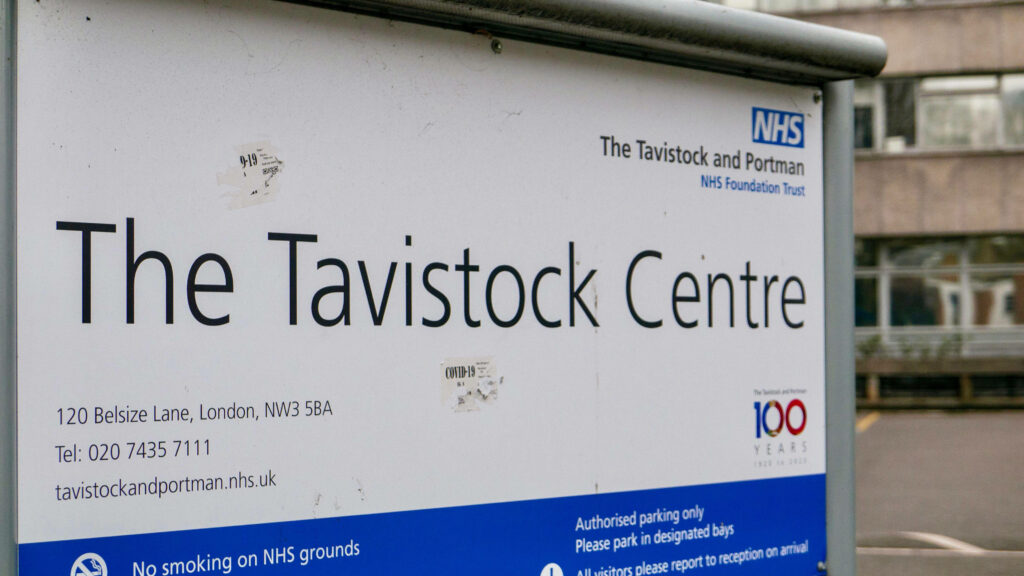The British NHS just issued an order for the infamous Gender Identity Development Service (GIDS) within the Tavistock and Portman NHS foundation trust to close until spring 2023 after the UK’s only gender identity clinic for children was criticised in an independent review.
NHS upheld recommendations from Dr Hilary Cass, a pediatrician who was tasked with compiling an independent review of gender identity services for children and young people. In 2021, the Care Quality Commission graded GIDS as ‘Inadequate’, which is the lowest possible rating. It found that the safety of services offered by GIDS required improvement and that staff were poorly led.
While we welcome the news of GIDS closing its doors at least for a while, the news of the gender clinic being forced to shut its doors for a while is perhaps a Pyrrhic victory, as Dr Cass’s report suggests opening more gender services across the country to resolve the problem of GIDS’ long waiting lists and to better meet patients’ needs. We can only hope that this will indeed lead to patients with gender referrals actually getting better medical care and having doctors and other professionals paying sufficient attention to their individual histories and circumstances.
Still, the report also noted a lack of “open discussion” about gender dysphoria and that the clinic practiced “predominantly an affirmative, non-exploratory approach, often driven by child and parent expectations”.
Scandal-ridden history of GIDS
GIDS was set up more than three decades ago “for children and young people, and their families, who experience difficulties in the development of their gender identity.” However, recently there have been increasing and alarming reports about the clinic rushing its patients into transition too quickly, some even as young as three.
Back in 2018, a distinguished psychiatrist and practicing psychoanalyst David Bell wrote a controversial report about GIDS’ activities, where he worked from 1995 until his retirement in 2021. The fears expressed in the report were shared by parents of transgender children, who also raised their concerns about the clinic “fast-tracking” young people into life-altering decisions, without sufficiently analyzing and assessing their personal and individual specificities and histories. The case of Keira Bell, a former patient at Tavistock, is an example of a young person being rushed into medical transition and surgery, and later regretting this mostly irreversible decision.
The Tavistock management did not react well to Dr. Bell’s whistleblowing–it tried to silence him and instituted proceedings against him, going so far as to remove his book from the trust’s library. Dr. Bell was approached by another 10 GIDS staff over the following months who had similar concerns and were severely troubled by what they had witnessed at the clinic. Their concerns included children who seemed to be rehearsed in what they said to the staff; treatments that were recommended to children after only two appointments; employment of too many inexperienced (and therefore inexpensive) psychologists.
In 2021, the Guardian reported on this, saying that one of the staff told Dr. Bell that a child only eight years old had been referred to an endocrinologist for treatment. “I could not go on like this… I could not live with myself given the poor treatment the children were obtaining,” said another.
Steep increase in referrals
The UK gender clinic saw a surge in gender referrals over the past years. In 2009 it saw 80 patients, and by 2019 the figure had grown to 2,700. Dr Cass’s report acknowledges the steep increase in young gender incongruent patients, but makes no attempt to find out the reasons for that increase. Instead, it recommends opening more services in the country.
On the bright side, it touches on the issue of diagnostic overshadowing, noting that “many of the children and young people presenting have complex needs, but once they are identified as having gender-related distress, other important healthcare issues that would normally be managed by local services can sometimes be overlooked.” This is very important given the number of cases of children within the autism spectrum, or those with disabilities and other development issues who are convinced by their parents and/or medical staff that the issues they face are in fact due to them being “trapped in the wrong body”.
Also, individuals otherwise healthy, but suffering from trauma, depression and similar mental health issues are rushed into gender treatments and only too late do they realize that surgery and cross-sex hormones did nothing to resolve their issues–rather the opposite. In fact, Dr Cass’s report stated that there has been a “dramatic change” in who is being referred, with more children registered female at birth, neurodiverse children and children with mental health needs. Let us hope that doctors in the UK and elsewhere will adopt a more cautious approach to children and youth with gender dysphoria and get to the root cause of their condition in order to offer them safe and adequate treatment.
